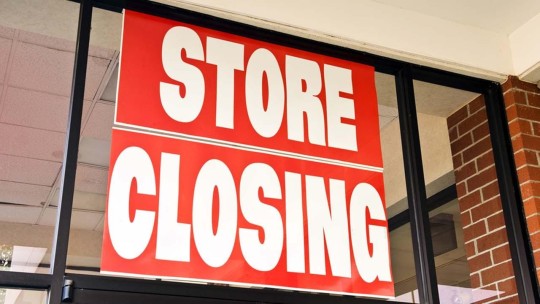HR in the U.S. retail industry is facing big challenges, with
stores closing and retailers shifting to e-commerce to meet the changing
demands of customers.

Image source: http://abc13.com/tag/store-closing/
Recent news reports about massive store closings, such as those
announced by Macy’s, RadioShack and J.C. Penney, have prompted some industry
observers to declare that the country is in the midst of a “retail
apocalypse.”
Technology is driving many of the changes. Customers can browse,
compare and buy on their phones. Retailers can manage their supply chains and
delivery processes more effectively. “We’re at a tipping point,” said
Mark Oshima, a managing partner with consulting firm Aon in Newport Beach,
Calif. “I don’t think we’re going to go back.”
Many of the new retail jobs require better skills and pay more.
People who operate sales registers are in less demand. People who can enhance
the customer experience are needed in greater numbers. Those who can analyze
data to anticipate product demand and move goods efficiently are becoming
crucial.
Home Depot saw the massive transformation of the retail industry
coming. It has closed few stores and is even opening new ones. To meet the
changes in consumer preferences, the chain created in-store positions such as
delivery associate and order fulfillment associate. And it is adding
outside-the-store jobs such as logistical analyst and warehouse associate as
well as software development positions.
“The business is changing faster than ever,” said
Sherry Yaskin, vice president of HR for U.S. stores and operations at Home
Depot. “HR is more important than ever.” She noted that each newly
hired Home Depot store associate is given a coach to help the employee become
adjusted and to improve retention.
Rethinking Staffing Strategies
Jay M. Wallace, a partner with law firm Bell Nunnally in Dallas,
said many retailers view their employees as “a fungible commodity.”
The retail industry has had a relatively high percentage of part-time employees
and “gig economy” workers who operate as independent contractors.
Some retailers want to use more independent contractors and
fewer employees, in part because contractors typically don’t receive company
benefits such as health care coverage. However, Wallace noted that many such
employers are on thin ice legally, because workers whose hours are dictated by
managers might not meet the federal government’s definition of an independent
contractor.
Langbert said that retailers might want to rethink their human
capital strategies. They will need longer-term employees who understand the
market and are loyal to their employer. Repurposing some of the people who are
in danger of being laid off because of store closings could help. “Chains
are going to benefit from retraining the existing workforce,” he said.
“HR is following business strategy. As the strategy changes, HR has to
evolve.”
“HR directors have got to think about a different kind of
hiring model,” Mandel said. "Companies will get a chance to
invest more in their workers as they move to the learning economy.“
Oshima said re-skilling employees for new jobs "is
definitely being talked about.” He noted that one of his retail clients
“is looking at the entire employee life cycle” to ensure that the
worker experience is positive and that employees are offered opportunities to
add skills.
As competition for talent forces retailers to offer better pay
and benefits, companies start thinking of new hires as longer-term employees
and tend to put more time and energy into selecting and developing them, said
Todd Manas, a managing director with professional services firm Willis Towers
Watson in New York City.
However, HR will be particularly challenged to attract workers
to companies that are closing stores, he said. “People who are not in
retail see the closings and think, ‘Gee, do I really want to work there?’ It
makes it much harder to recruit and retain.”
Oshima said some of his retail clients are looking at different
segments of the workforce and trying to determine what attracts each of them.
“HR leaders are having to use a more sophisticated and scientific
approach.”
And HR will have to work harder to get the most out of those who
come on board. “Retailers are upping their game around managing
performance and paying for performance,” Manas said.
For
your HR department, this means big challenges are on the way. Is your business
prepared to recruit the specific talent that you need? Can you effectively
recruit top candidates, while also focusing on growing your company? If the
answer isn’t a solid yes, it may be time to reach out to a team of HR experts.
Converge HR Solutions specializes in all aspects of human resources, including
recruitment processes. To browse
our services, visit https://convergehrsolutions.com/. Contact us
directly at info@convergehrsolutions.com or
610-296-8550.
Article source: https://www.shrm.org/resourcesandtools/hr-topics/talent-acquisition/pages/retail-revolution-challenges-hr.aspx


0 Comments